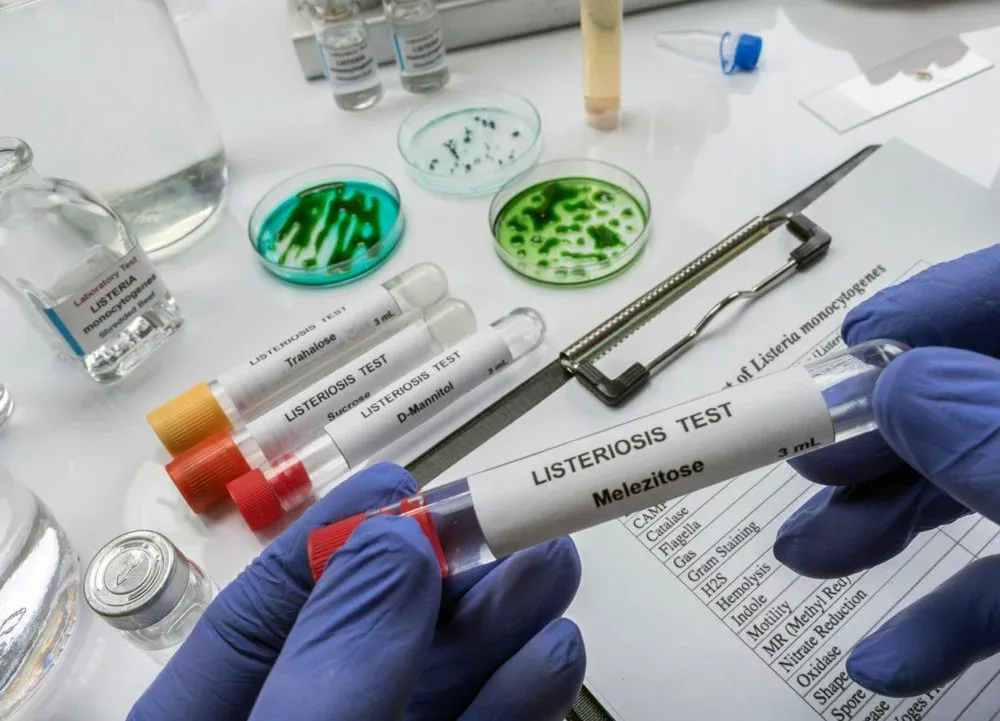The expert analyzes stuffed meat contaminated by the bacterium of listeria in the laboratory/ iStock. The global Hospital Microbiology...
 |
| The expert analyzes stuffed meat contaminated by the bacterium of listeria in the laboratory/ iStock. |
Microbiology testing plays a crucial role in diagnosing and managing infectious diseases in hospitals. It involves the identification and characterization of microorganisms such as bacteria, viruses, fungi, and parasites that cause infections in patients. Hospital microbiology testing is essential for the timely and accurate diagnosis, treatment, and monitoring of infectious diseases, and it plays a critical role in infection control measures in healthcare facilities.
The increasing prevalence of infectious diseases, the growing global population, and the rising awareness about the importance of early diagnosis and treatment of infectious diseases are some of the key factors driving the demand for hospital microbiology testing. Additionally, the emergence of drug-resistant microorganisms, the need for rapid and accurate diagnostics to prevent outbreaks, and the advancements in technology for microbiology testing are also contributing to the market growth.
The press release highlights that the increasing adoption of molecular diagnostics and automation in microbiology testing is expected to drive the growth of the hospital microbiology testing market. Molecular diagnostics offer several advantages, including high sensitivity, specificity, and rapid results, which are crucial for the timely diagnosis and management of infectious diseases.
 |
| Blood samples for Liquid biopsy blood test to detect cancer cells or DNA fragments. |
However, the Asia Pacific region is projected to witness the highest growth rate in the hospital microbiology testing market, driven by factors such as increasing healthcare expenditure, improving healthcare infrastructure, and rising awareness about infectious diseases.
The press release also highlights the key players operating in the hospital microbiology testing market, including major companies such as Abbott Laboratories, Becton, Dickinson and Company, Bio-Rad Laboratories, Inc., bioMérieux SA, Danaher Corporation, Thermo Fisher Scientific Inc., and Roche Diagnostics, among others. These companies are focusing on product innovations, strategic collaborations, and acquisitions to strengthen their market position and cater to the growing demand for hospital microbiology testing.
The global hospital microbiology testing market is expected to witness significant growth and reach a value of US$ 4.84 billion by the year 2030, driven by the increasing prevalence of infectious diseases, growing awareness about early diagnosis and treatment, and advancements in technology.
Molecular diagnostics and automation are anticipated to play a crucial role in driving the market growth, and North America and Asia Pacific regions are expected to be the key regions driving the demand for hospital microbiology testing. The key players in the market are also focusing on strategic initiatives to capitalize on the growing market opportunities.
These strategic initiatives include product innovations, collaborations, and acquisitions to expand their product portfolios, improve their technological capabilities, and strengthen their market presence. For instance, many companies are investing in developing advanced molecular diagnostic techniques, such as polymerase chain reaction (PCR) and next-generation sequencing (NGS), to enhance the accuracy and speed of microbiology testing.
Furthermore, automation is also a key focus area for market players as it can streamline microbiology testing workflows, reduce manual errors, and improve efficiency. Automated microbiology systems, such as automated blood culture systems, automated microbial identification systems, and automated antimicrobial susceptibility testing (AST) systems, are gaining traction in hospitals due to their ability to provide rapid and reliable results.
However, there are also challenges that the hospital microbiology testing market may face. These challenges include the high cost of advanced microbiology testing equipment and assays, the complexity of testing procedures, and the shortage of skilled laboratory personnel. Additionally, stringent regulatory requirements and reimbursement policies related to microbiology testing may also impact market growth.
Despite these challenges, the hospital microbiology testing market is expected to witness significant growth during the forecast period. The increasing demand for early and accurate diagnosis of infectious diseases, the adoption of advanced molecular diagnostics and automation, and the expanding healthcare infrastructure in emerging economies are expected to drive market growth.
The global hospital microbiology testing market is poised for substantial growth, with a projected value of multi-billion. The market is driven by factors such as the increasing prevalence of infectious diseases, advancements in technology, and the growing adoption of molecular diagnostics and automation.
Market players are focusing on product innovations and strategic collaborations to capitalize on market opportunities, and POC testing is emerging as a significant trend. However, challenges related to cost, complexity, and regulatory requirements may impact market growth. Nonetheless, the hospital microbiology testing market is expected to experience robust growth in the coming years, driven by the need for accurate and timely diagnosis of infectious diseases in hospital settings.
Here are some examples of sources that you can refer to for further information on the topic of the hospital microbiology testing market:
- Growth Plus Reports: https://growthplusintelligence.com/
- Market Research Reports: https://www.marketresearchreports.com/
- MarketWatch: https://www.marketwatch.com/
- Grand View Research: https://www.grandviewresearch.com/
- Transparency Market Research: https://www.transparencymarketresearch.com/
- Allied Market Research: https://www.alliedmarketresearch.com/
- Research and Markets: https://www.researchandmarkets.com/
- Business Wire: https://www.businesswire.com/


.jpg)


.jpg)


